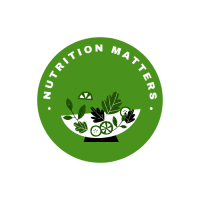Do you believe in prevention?
I do, very much so. It’s hope giving and it’s empowering, and that combination is what we need at any point in life, more so when doubts about health and longevity kick in.
It’s not unusual to hear someone say their parents had either heart disease or hypertension, or dementia, therefore ‘it runs in the family’ so… there’s no running away from it. Well, there is.
Our genes have a lot to say, but our lifestyle and diet, especially, can improve gene expression. Meaning they can turn certain genes on or off, thus influencing health or disease down the road.
This phenomenon is called epigenetics and I will attach no further nerdy details than to say it forms a great partnership with prevention. So like I said, it’s about hope and empowerment. There is something we can do even when we’ve been handed less than stellar genetic cards.
Treatments are great when we need them, but could we do more to prevent chronic diseases?
A headline from a medical news update I received last week read something like this: ‘Some arthritis drugs may reduce Alzheimer’s and related dementias risk in those with heart disease.’
Well, that’s great, isn’t it? A reduced risk of neurogenerative disease such as Alzheimer’s and dementia is desirable. If the ‘may’ materializes, that is. Plus, arthritis may be taken care of. So, that’s all good, right?
Umm, yes and now. OK, let’s unpack. The ‘may’ is not troubling. In fact, you see it in many research study conclusions and can really mean ‘this looks like a strong correlation, but more research is needed.’ Fair enough, it’s a good and honest start.
The worrying part is that this one headline includes not one (as it’s usually the case) but three chronic diseases: arthritis, Alzheimer’s disease, and heart disease.
All preventable. Let’s first acknowledge that there is a time and place for medication, and research is vital to making sure we have them when we need then. However, they do come with side effects, hence the provision that we should only take them as needed.
But there are other things we can do, namely tweak our diet and lifestyle, which can help lower the risks. No side effects in this case.
Worth exploring, right?
Addressing nutritional needs lowers risk of chronic illness
Our bodies need a variety of nutrients to live (and thrive, ideally). We need to have adequate levels of carbohydrates (the complex kind, rather than simple sugars), healthy fats and protein. We need vitamins and minerals, and other compounds such as phytochemicals, that provide the cells in our whole body, gut bacteria included, with proper, clean ‘fuel’ and ways to defend themselves not just against pathogens, but also against reactive molecules that can cause trouble.
It may seem like a tall order and a nutrition conundrum: how do you do all that? The simplest rule: avoid processed foods, which contain way more refined sugars and salt than you need, and a whole bunch of added flavours that make naturally occurring ones you find in whole foods just not tasty enough.
Whole foods, including leafy greens, fresh veggies and fruit, legumes, mushrooms, nuts and seeds, and meals cooked from them, plus staying well hydrated, give your your body what it needs to live and thrive, while lowering the risk factors for chronic disease.
Add regular physical activity, proper sleep, and stress management, and you’ve got a yourself a nice preventive toolkit.
I think what makes all this appealing, aside from the obvious (reducing the risk of disease) is that there are no side effects. Healthy, whole-foods based meals are healthy and also pretty to look at. Remember, it’s all about the colours. Filling your plate with colours means you’re giving your cells what they need to stay healthy, eliminate waste and renew themselves when needed.
Bottom line: You have more energy when you supply your body with nutrient-rich foods which also improves your mood, plus lesser chance of chronic illness.
It works. Without side effects. That wins me over every time.
What about you?







